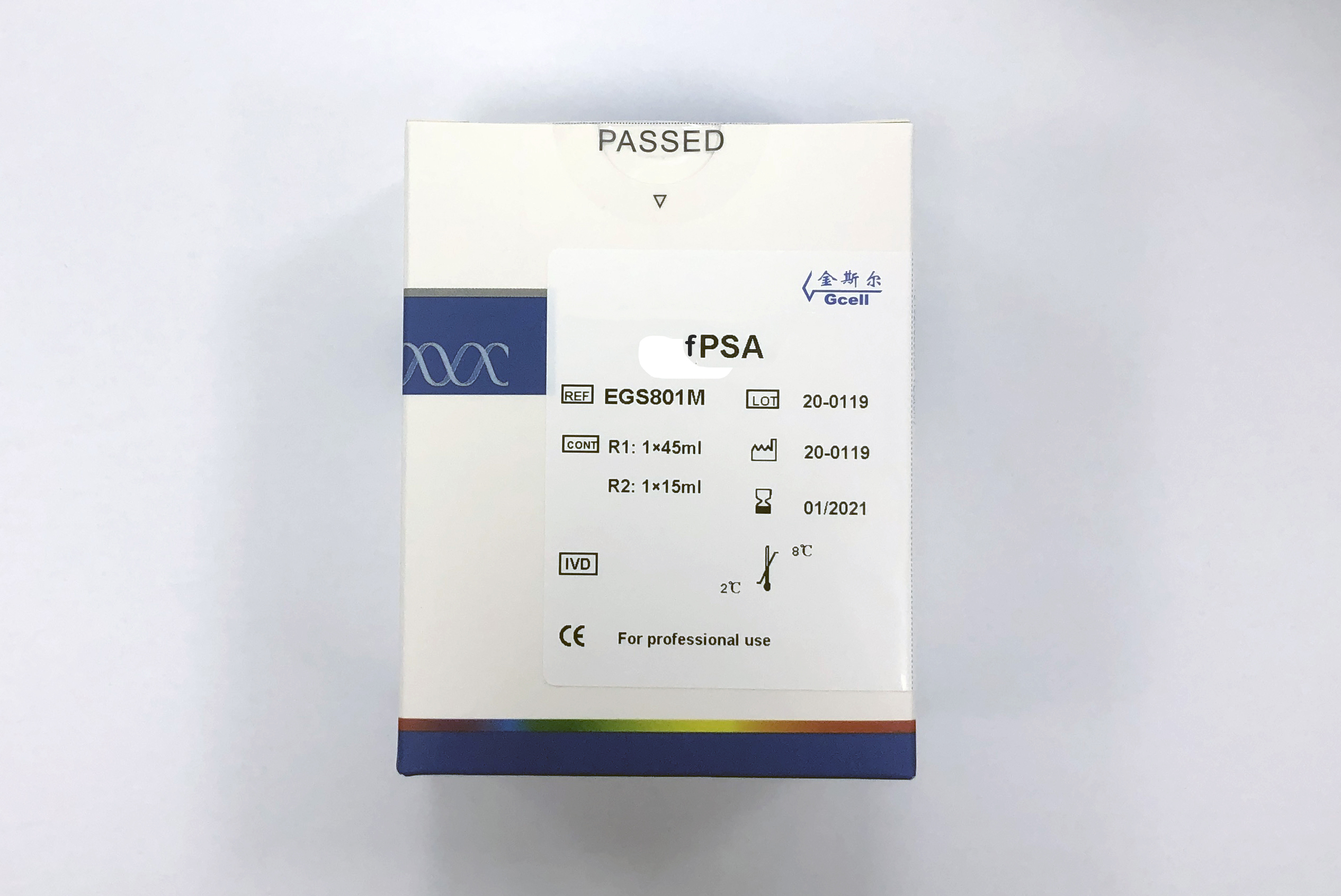Free Prostate Special Antigen
Method: latex
Immunoturbidimetric Method Liquid reagent, R1: R2=2:1
CLINICAL SIGNIFICANCE
The PSA in serum is called total PSA (tPSA),
and about 10 ≤ 15% of the PSA is about 85% of the free form of (fPSA), about 90% of
which is the binding form of (cPSA). Serum total PSA is recognized as the first
choice for the diagnosis of prostate cancer. However, when total PSA is in
4-10ng/mL (diagnostic gray area), it cannot distinguish benign prostatic
hyperplasia (BPH) from prostate cancer (prostate cancer). The study found that
the proportion of fPSA in gray prostate cancer patients was lower than that in
benign prostatic hyperplasia (BPH). Therefore, the determination of fPSA concentration
and the calculation of the ratio of fPSA to tPSA concentration can improve the
diagnostic ash area. Sensitivity and specificity of prostate cancer [1 ≤ 3].
PRECISION
|
Intra assay precision |
Inter assay precision |
|||||
|
N=20 |
level 1 |
level 2 |
N=5 |
Batch 1 |
Batch 2 |
Batch 3 |
|
Mean (ng/ml) |
0.83 |
3.43 |
Mean (ng/ml) |
3.38 |
3.30 |
3.38 |
|
SD |
0.03 |
0.02 |
`c |
3.35 |
||
|
CV (%) |
3.25% |
0.49% |
(Xmax-Xmin) /`c |
2.39% |
||
Sensitivity
For analysis sensitivity, the absorbance change rate (△A/min) should more than 0.01 under sample concentration of 2.00 ng/ml.
Correlation
The correlation of a well-known brand(X) and Gcell(Y) is y = 0.8808x + 0.1842, R² = 0.9808

Interference
|
Analytes |
Concentration |
|
Bilirubin |
40 mg/dl |
|
Hemoglobin |
500 mg/dl |
|
Intralipid |
200 mg/dl |
|
RF |
100 IU/ml |
Linearity
Linearity is [0.30, 10.00] ng/ml.

